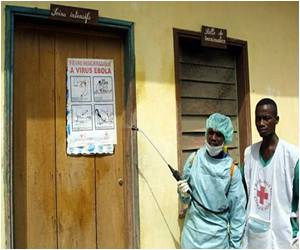Liberian President Ellen Johnson Sirleaf revealed a number of steps to contain the outbreak, including stringent medical checks at airports and major trade routes have been put in place.

"All borders of Liberia will be closed with the exception of major entry points," the president said in a statement late Sunday which exempted Monrovia's international airport, a provincial airport and three major border crossings.
"At these entry points, preventive and testing centres will be established," the president said in a statement late Sunday.
Liberia has seen 127 deaths from Ebola, which causes severe fever and muscle pain, vomiting, diarrhoea and, in the worst cases, organ failure and unstoppable bleeding.
"A new travel policy by the Liberia Airport Authority covering inspection and testing of all outgoing and incoming passengers will be strictly observed," Sirleaf said in the statement.
The government has also banned public gatherings of any kind, including events and demonstrations, it noted.
Advertisement
Ebola is believed to be carried by animals hunted for meat, notably bats. It spreads among humans via bodily fluids including sweat, meaning people can get sick from touching an infected person.
Advertisement
The virus first emerged in 1976 in what is now the Democratic Republic of Congo, and is named after a river there.
Source-AFP









